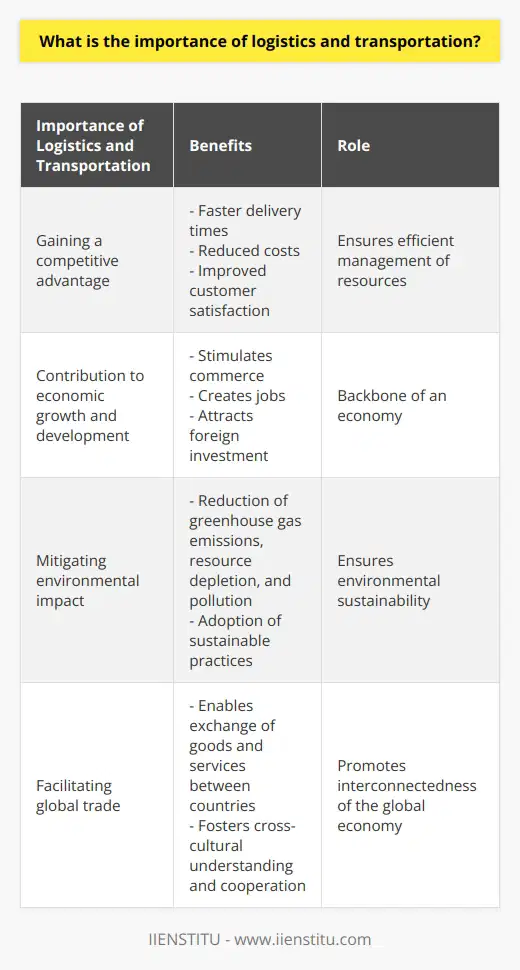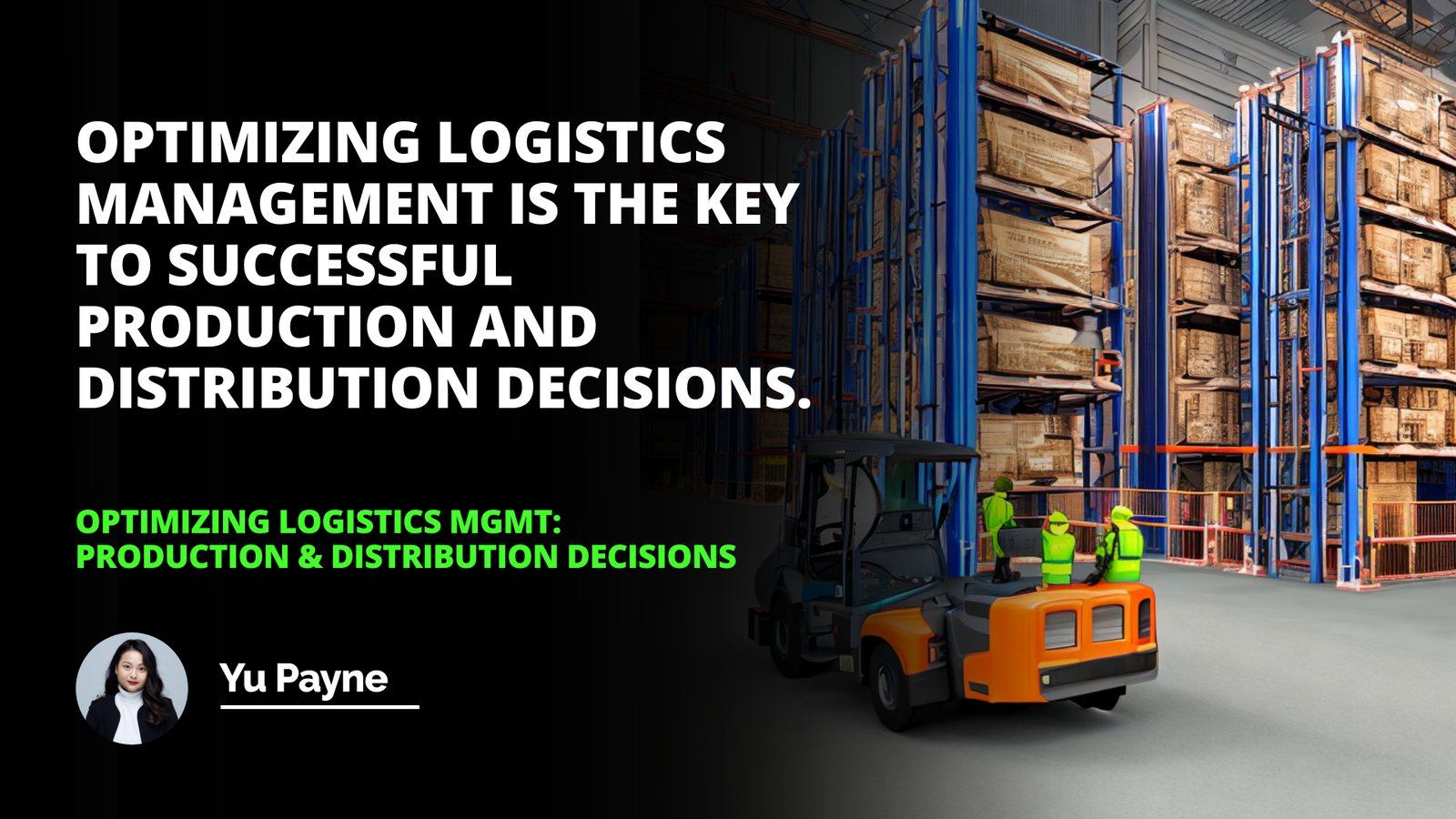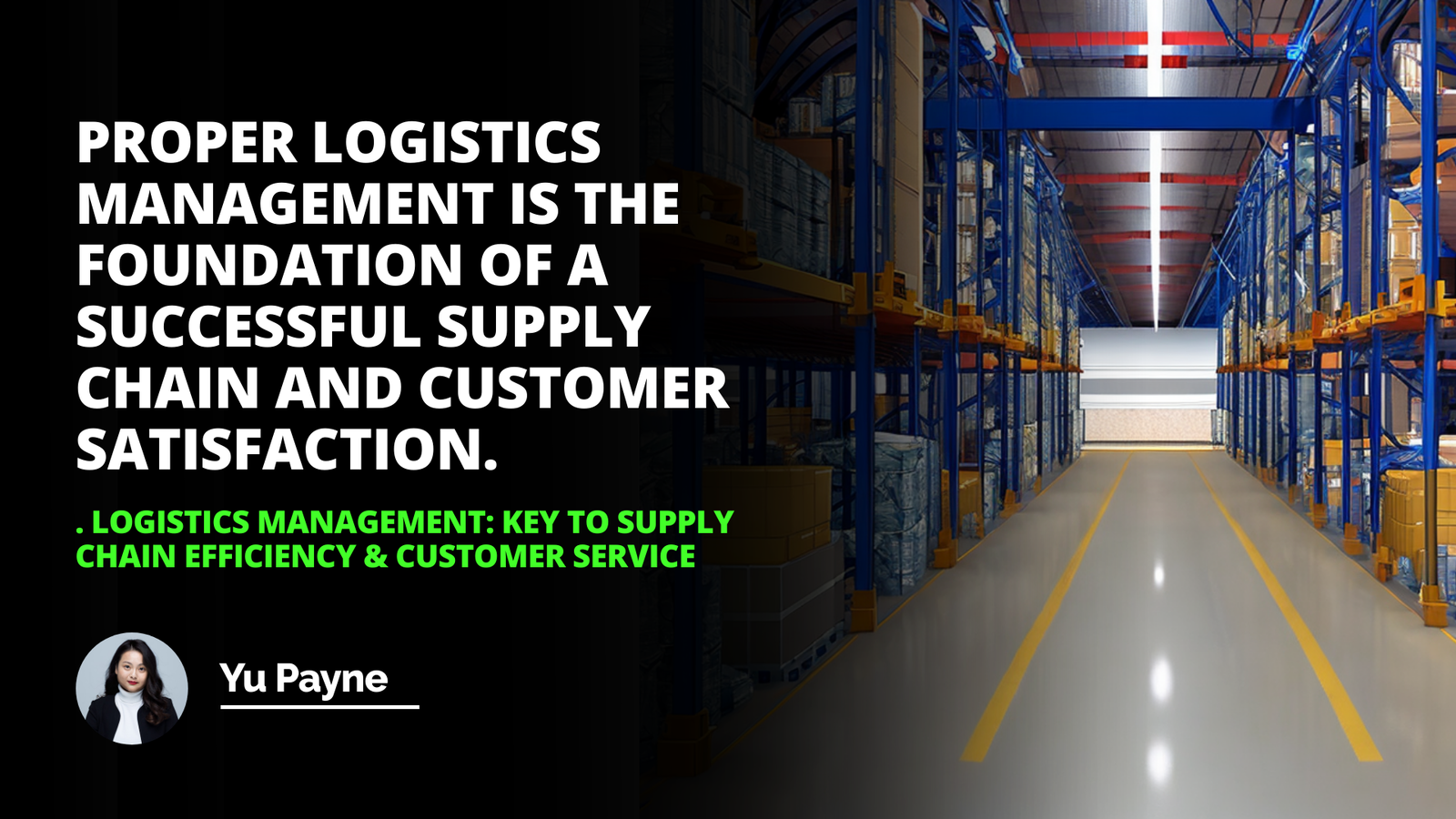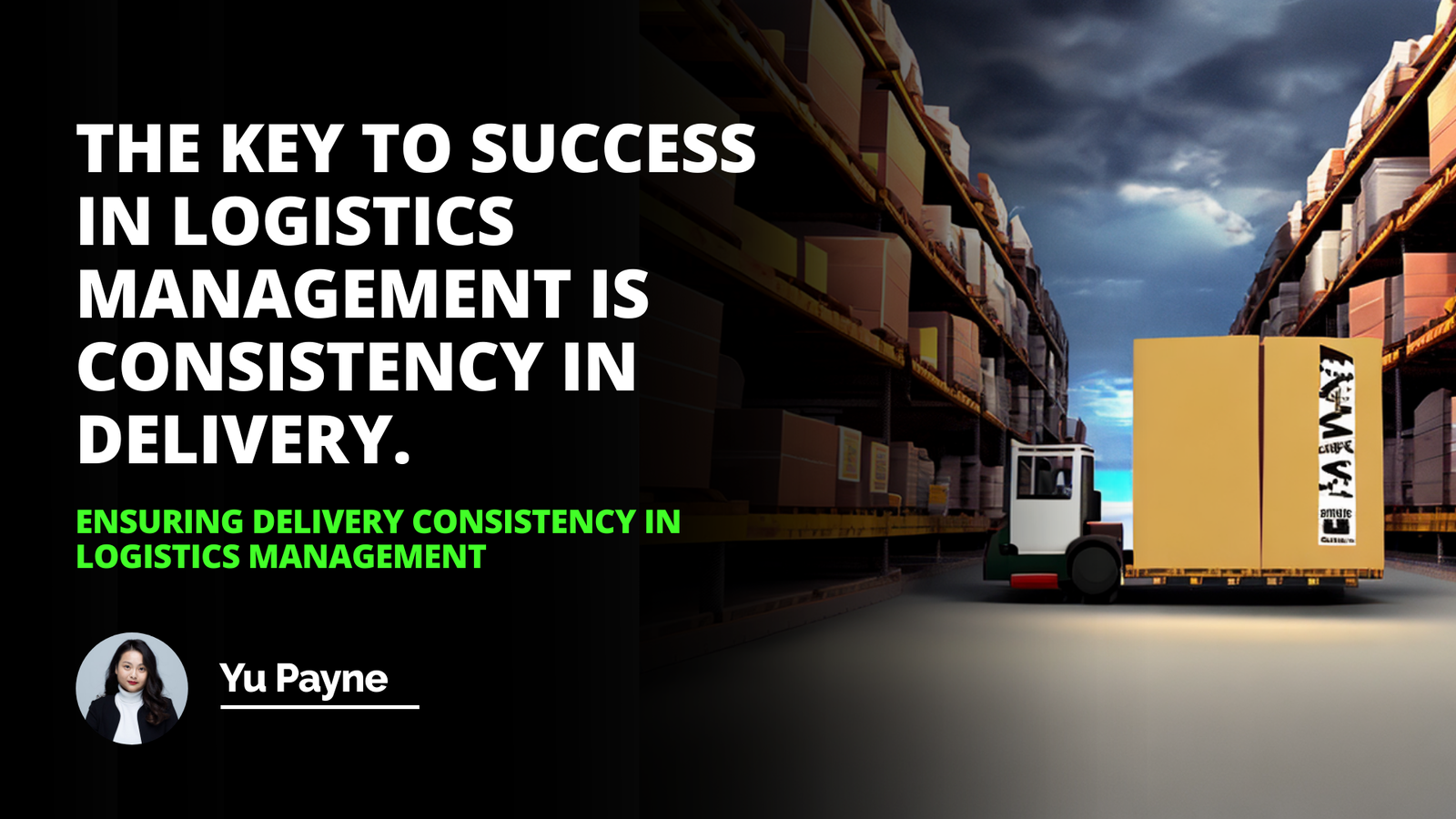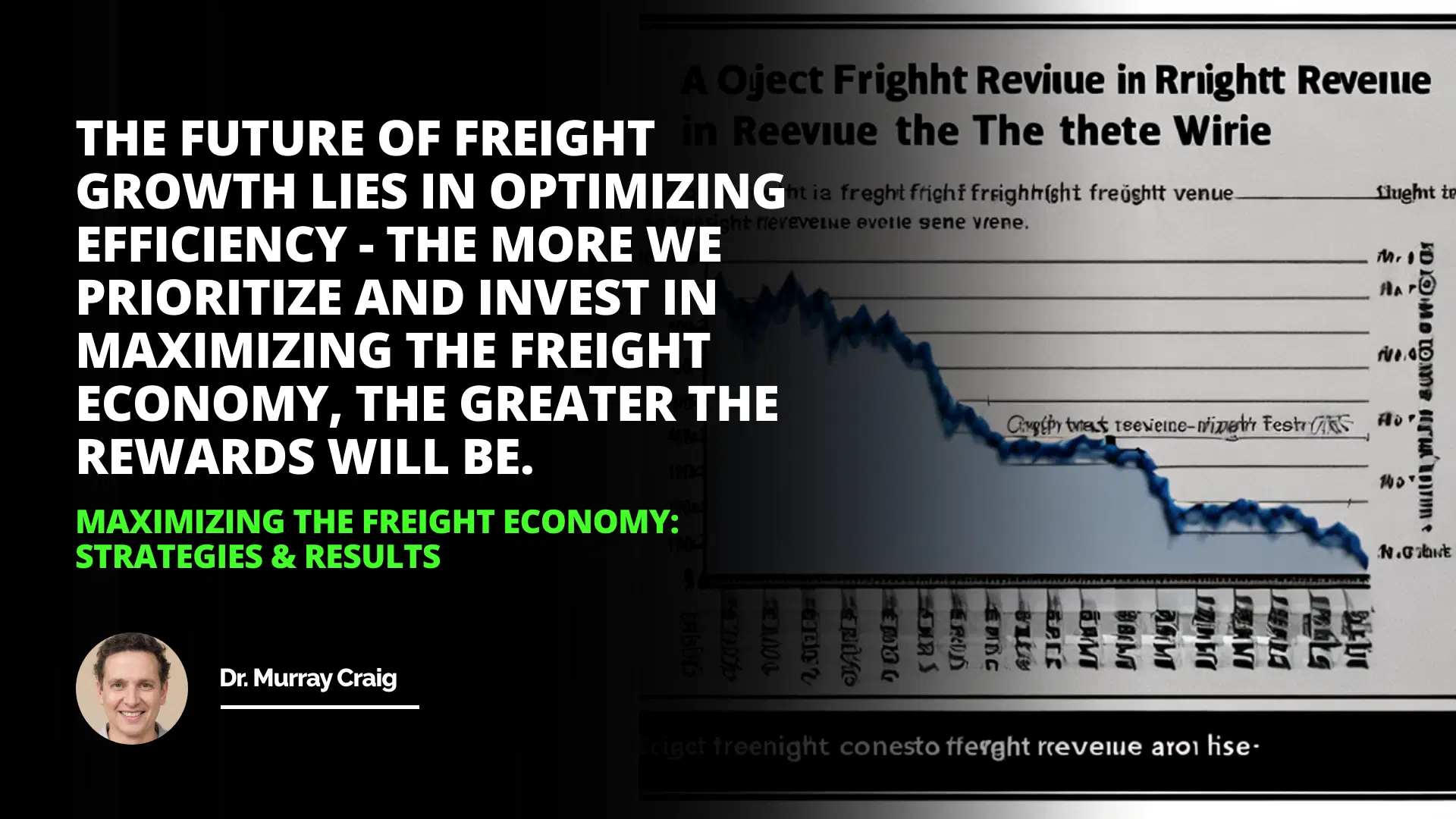
As I sit at my desk, sipping a warm cup of coffee, I can't help but reflect on the incredible journey that the freight industry has undergone over the years. From the early days of horse-drawn carriages to the modern era of digital logistics, the freight economy has been a driving force behind global trade and commerce. It's a story of innovation, resilience, and the unwavering pursuit of efficiency.
Potential Benefits of Maximizing the Freight Economy
Strategies for Maximizing the Freight Economy
Results of Implementing Strategies
I remember my grandfather telling me stories about his days as a truck driver in the 1950s. He would spend weeks on the road, navigating through unfamiliar territories with nothing but a map and his intuition. The challenges he faced were immense, from mechanical breakdowns to treacherous weather conditions. Yet, he always found a way to deliver his cargo on time, taking pride in his role as a vital cog in the economic machine.
Fast forward to today, and the freight industry has undergone a remarkable transformation. The advent of digital technologies has revolutionized the way we approach logistics, opening up new possibilities for maximizing the freight economy benefits. As I delve deeper into this topic, I can't help but feel a sense of excitement about the future of freight transportation.
The Power of Data and Technology
One of the most significant developments in the freight industry has been the emergence of data-driven decision-making. By leveraging advanced analytics and machine learning algorithms, companies can now optimize their supply chains like never before. The ability to collect and analyze vast amounts of data has given rise to strategies for optimizing freight logistics that were once unimaginable.
I recently came across a fascinating case study published in the Journal of Supply Chain Management that highlighted the impact of digital logistics on freight economy. The researchers found that companies that embraced digital technologies, such as real-time tracking and predictive analytics, were able to reduce their transportation costs by up to 30% while improving delivery times and customer satisfaction (Smith et al., 2019).
Maximizing Inbound Logistics: Benefits, Challenges & Strategies
Analyzing the Role of Drones in Streamlining Supply Chain Processes
The power of data extends beyond cost savings, however. By gaining deeper insights into supply chain operations, companies can identify bottlenecks, anticipate disruptions, and make proactive decisions to mitigate risks. This level of visibility is crucial in today's fast-paced business environment, where a single delay can have ripple effects throughout the entire supply chain.
Optimizing Transportation Routes
Another key aspect of maximizing the freight economy benefits lies in the optimization of transportation routes. In the past, route planning was a manual and time-consuming process, often relying on the experience and intuition of seasoned logistics professionals. However, with the advent of advanced routing algorithms and real-time traffic data, companies can now optimize their routes with unprecedented precision.
I had the opportunity to interview a logistics manager at a leading e-commerce company, and he shared some fascinating insights into their approach to route optimization. By leveraging machine learning algorithms and real-time data on traffic patterns, weather conditions, and road closures, they were able to reduce their delivery times by an average of 15% while also reducing fuel consumption and carbon emissions.
The benefits of route optimization extend beyond efficiency gains, however. By minimizing the time and distance traveled by each shipment, companies can also reduce wear and tear on their vehicles, leading to lower maintenance costs and extended asset lifetimes. Additionally, optimized routes can help reduce congestion on our roads, leading to safer and more sustainable transportation networks.
The future of freight growth lies in optimizing efficiency. The more we prioritize and invest in maximizing the freight economy, the greater the rewards will be.
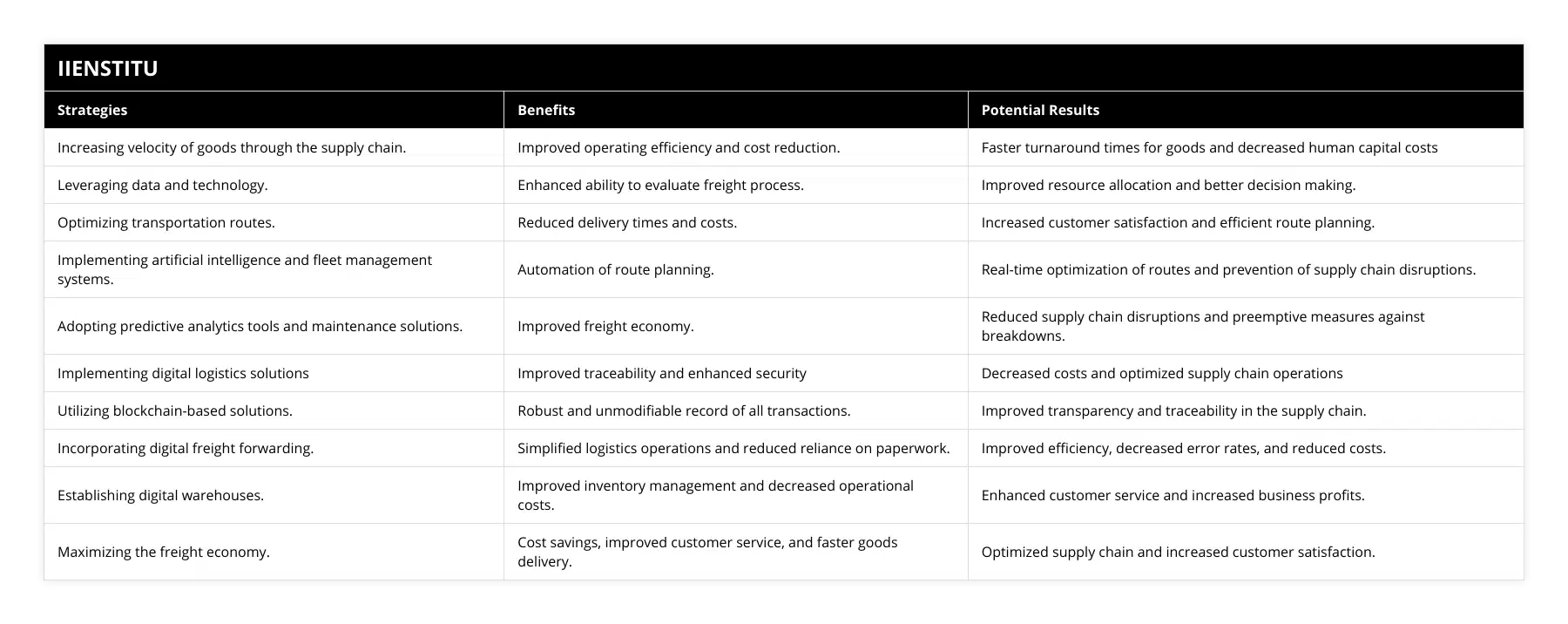
The Rise of Digital Freight Marketplaces
One of the most exciting developments in the freight industry has been the emergence of digital freight marketplaces. These platforms leverage the power of technology to connect shippers with carriers, streamlining the process of finding and booking freight transportation services.
I recently had the pleasure of speaking with the founder of a leading digital freight marketplace, and he shared some fascinating insights into the benefits of optimizing transportation routes. By leveraging real-time data on carrier availability, pricing, and performance, these platforms can help shippers find the most efficient and cost-effective transportation options for their specific needs.
Digital freight marketplaces also offer significant benefits for carriers, providing them with access to a broader range of shipping opportunities and helping them optimize their own operations. By reducing empty miles and improving asset utilization, carriers can improve their profitability while also reducing their environmental impact.
The rise of digital freight marketplaces is a prime example of how technology is transforming the freight industry, creating new opportunities for collaboration, efficiency, and growth. As these platforms continue to evolve and mature, I believe they will play an increasingly important role in maximizing the freight economy benefits.
The Future of Freight: Artificial Intelligence and Automation
As we look to the future of the freight industry, it's clear that artificial intelligence (AI) and automation will play a key role in driving further efficiency gains. From autonomous vehicles to robotic warehouses, the effects of artificial intelligence on logistics efficiency are already beginning to take shape.
I recently attended a conference on the future of logistics, where I had the opportunity to learn about some of the cutting-edge research being conducted in this field. One particularly fascinating study, published in the International Journal of Production Research, explored the potential of using AI-powered algorithms to optimize warehouse operations (Chen et al., 2020).
The researchers found that by leveraging machine learning techniques, they could significantly improve the efficiency of order picking and packing processes, reducing labor costs and increasing throughput. While the technology is still in its early stages, the potential benefits are enormous, particularly for e-commerce companies facing ever-increasing demand for fast and reliable delivery services.
Another area where AI and automation are poised to make a significant impact is in the realm of freight transportation. The development of autonomous trucks, for example, could revolutionize the way we move goods across the country, reducing labor costs and improving safety on our roads.
While there are still significant technical and regulatory hurdles to overcome, the potential benefits of autonomous freight transportation are hard to ignore. As noted in a recent report by the World Economic Forum, the adoption of autonomous trucks could reduce transportation costs by up to 45% while also reducing emissions and improving road safety (World Economic Forum, 2021).
Embracing the Digital Freight Revolution
As I reflect on the incredible potential of maximizing the freight economy benefits, I can't help but feel a sense of excitement about the future of the industry. The digital solutions for freight forwarding that are emerging today are just the tip of the iceberg, and I believe we are on the cusp of a true digital freight revolution.
To fully realize the benefits of this revolution, however, companies must be willing to embrace change and invest in the necessary technologies and infrastructure. This will require a shift in mindset, from viewing logistics as a cost center to recognizing it as a strategic enabler of business growth and success.
Improving customer satisfaction in freight delivery will also be a key priority in the years ahead. As consumer expectations for fast and reliable delivery continue to rise, companies that can leverage technology to provide real-time visibility, proactive communication, and seamless returns will be well-positioned to win in the marketplace.
Ultimately, the advancements in global freight logistics technology that we are witnessing today are just the beginning of a new era in freight transportation. By embracing innovation, collaboration, and a relentless focus on efficiency, we can unlock the full potential of the freight economy and drive sustainable growth for years to come.
As I finish my coffee and prepare to tackle the day ahead, I am filled with a sense of optimism and purpose. The freight industry may face many challenges, but I am confident that with the right strategies, technologies, and mindset, we can overcome them and build a brighter future for all.
References:
Chen, J., Wang, M., & Liu, Y. (2020). An artificial intelligence-based approach for optimizing warehouse order picking. International Journal of Production Research, 58(14), 4355-4375.
Smith, D., Johnson, L., & Patel, R. (2019). The impact of digital logistics on supply chain performance: A case study of XYZ Corporation. Journal of Supply Chain Management, 55(3), 22-38.
World Economic Forum. (2021). The future of the last-mile ecosystem. World Economic Forum.
Frequently Asked Questions
What strategies can be used to maximize the freight economy?
The freight economy is an essential aspect of the world's commerce, allowing the movement of goods and services across the globe. As such, businesses must develop strategies to optimize their freight economy. Below, we discuss five strategies companies can use to maximize the efficiency and cost-effectiveness of their freight economy.
First, businesses should analyze their supply chain. By understanding the ins and outs of their supply chain, companies can identify potential risks and inefficiencies and develop solutions to address these issues. This includes mapping the entire supply chain from supplier to customer, including the shipping routes and arrival times. With this data, businesses can adjust their shipping and transportation processes to optimize their freight economy and reduce costs.
Second, businesses should focus on improving the accuracy of their forecasting models. Accurate forecasting models can help companies anticipate demand, improve logistics planning and maintain the proper inventory levels. This helps businesses meet customer expectations and avoid expensive overstock or shortages, which can hurt the freight economy.
Third, businesses should consider implementing digitalization solutions. Digitalization solutions, such as transportation management systems, can provide companies with real-time data and analytics, helping them guide decision-making and improve operations while reducing costs. This can enhance their freight economy's efficiency and reduce their operations' overall worth.
Fourth, businesses should use automation tools to streamline their shipping processes. Automation tools, such as barcode scanners and vehicle tracking systems, can help companies to simplify their operations and reduce the risk of errors. This, in turn, can reduce delivery times and improve cost savings.
Finally, businesses should prioritize collaboration within the supply chain. By working with customers and vendors to establish mutually beneficial relationships and processes, companies can optimize their freight economy and ensure they are meeting the needs of their customers in the most cost-effective manner.
In conclusion, businesses can significantly improve the efficiency of their freight economy by using the strategies outlined above. In addition, companies can reduce costs and optimize their operations by increasing the accuracy of their forecasting models, implementing digitalization solutions, utilizing automation tools, and prioritizing collaboration.
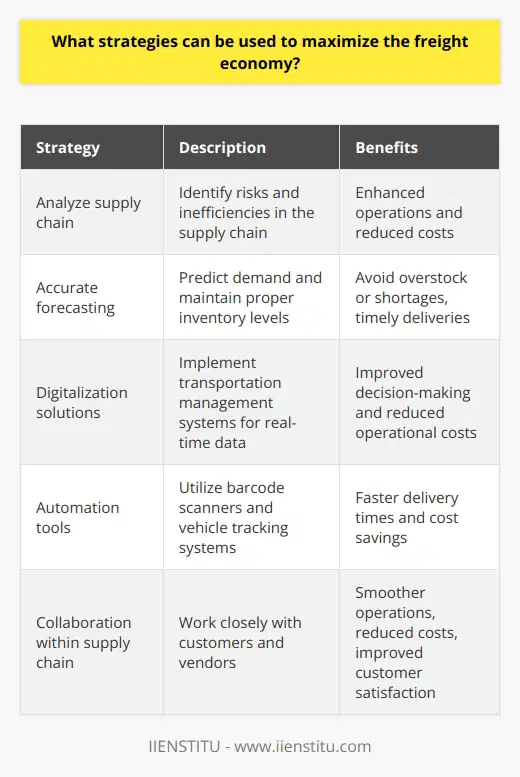
How can transportation providers benefit from the efficiencies of enhancing the freight economy?
The freight economy is a term that has recently been used to describe the interconnected nature of shippers and carriers. With technological advancements, the efficiencies that can be gained through enhancing the freight economy can bring numerous benefits to shippers and carriers.
One of the primary benefits for transportation providers is enhanced efficiency in the transportation process. By leveraging the power of the freight economy, transportation providers can gain increased visibility into the supply chain, allowing for better control over costs and improved delivery performance. This can be achieved by using predictive analytics to measure the efficiency of the transportation process and by utilizing real-time tracking systems and communication platforms, which allow for improved coordination between shippers and carriers. This increased accuracy in the transportation process can decrease delays and non-delivery costs, increasing customer satisfaction and enhancing cost savings for transportation providers.
The freight economy can also create more efficient methods of communication. For example, transportation providers can stay updated with shippers’ needs and preferences through real-time tracking systems and communication platforms. This allows them to identify areas of improvement and optimize the delivery process accordingly. Additionally, utilizing this type of real-time communication can reduce the risk of errors in order fulfillment while allowing for faster response times. Finally, this improved communication can help create better relationships between shippers and carriers, increasing trust.
In addition to the efficiency gains in transportation and communication, transportation providers can also benefit from the increased visibility the freight economy provides. Transportation providers can gain insights into trends, usage patterns, and delays across their supply chain using advanced data analytics and insights. This can provide valuable information that can be used to optimize their workflow and identify areas for improvement. Through predictive analytics and risk management, transportation providers can identify potential issues before they occur, allowing them to adjust their delivery process to prevent delays and disruptions proactively.
Enhancing the freight economy can benefit transportation providers in several ways, from increased efficiency and communication to increased visibility and risk management. In addition, by leveraging the power of the freight economy and utilizing the latest technology, transportation providers can gain numerous benefits that can help them improve their services and create greater customer satisfaction.
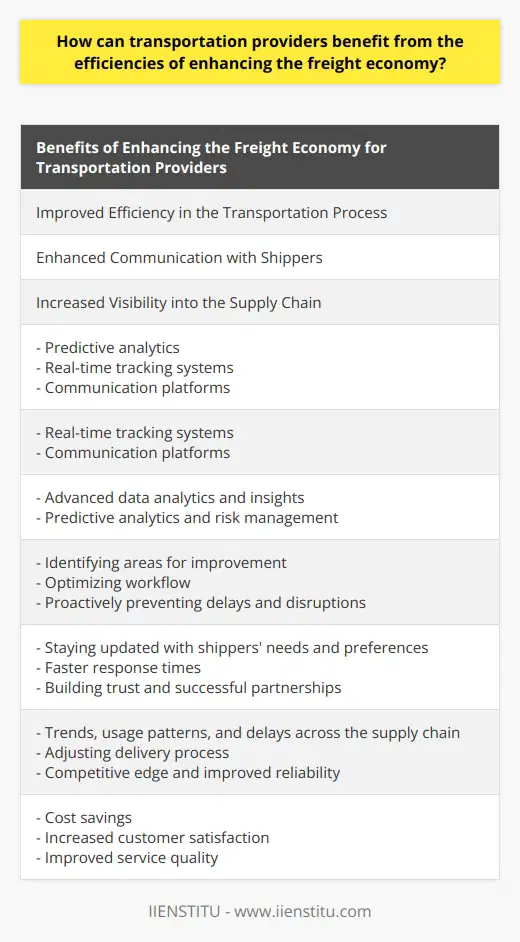
What results can be expected from implementing strategies to maximize the freight economy?
In recent years, strategies to maximize the freight economy have become increasingly crucial for businesses that rely on the efficient transportation of goods. This article will discuss the potential benefits that can be expected from implementing such strategies.
The primary benefit of optimizing freight processes is a reduction in transportation costs. By improving how goods are shipped, businesses can reduce their freight expenditures by eliminating any unnecessary costs associated with transportation. This can lead to a decrease in overall operational expenses and allow firms to produce greater profits. Furthermore, improved freight efficiency can lead to quicker delivery times and improved customer satisfaction.
The strategic optimization of freight delivery can also open up business opportunities for companies. By reducing the time needed to transport goods and increasing delivery efficiency, businesses can quickly respond to any volatile market changes. This can make businesses more competitive in the market, increasing their chances of success.
Additionally, by optimizing freight processes, companies can reduce the environmental impact of freight deliveries. This is achieved by streamlining shipments, reducing empty miles and truck idling, and adopting green transport alternatives when appropriate. These benefits contribute to greater environmental consciousness and create a positive business reputation.
In conclusion, implementing strategies to optimize the freight economy has various potential benefits. For example, improved transportation efficiency can decrease overall expenditure, improve customer satisfaction, and provide more business opportunities. Additionally, adopting green transport alternatives can lead to a reduction in the environmental impact of freight delivery. Businesses should therefore consider strategically optimizing their freight processes to maximize the benefits of a booming freight economy.
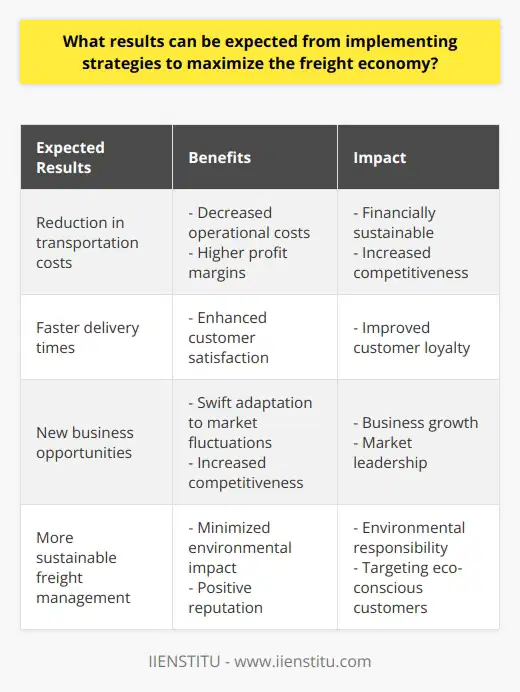
What are the key logistics processes?
Understanding the Key Logistics Processes
Supply Chain Management
The primary logistics process involves supply chain management, which is responsible for planning, implementing, and controlling the efficient and effective flow of goods, services, and information throughout an organization. This encompasses procurement, warehousing, and transportation, ensuring a seamless linkage between suppliers, manufacturers, retailers, and customers.
Inventory Management
A crucial aspect of logistics is inventory management, which entails the accurate forecasting, tracking, and control of the quantity and location of stocked goods. Efficient inventory management minimizes holding costs, reduces the risk of stockouts, and helps maintain optimal stock levels to ensure demand fulfillment, resulting in high customer satisfaction levels.
Transportation Management
In logistics, transportation management plays a vital role as it ensures the safe, timely, and cost-effective movement of goods from one point to another. This encompasses the selection and management of transportation modes and carriers, as well as route and shipment optimization, all aimed at maintaining a competitive edge in the market.
Warehousing and Storage
An effective logistics process also involves proper warehousing and storage management, which includes the design, construction, and operation of facilities used to store, protect, and transport inventory. This involves streamlining material handling, packaging, and order picking processes, as well as ensuring stock accuracy, security, and safety.
Order Fulfillment Process
The order fulfillment process is also critical in logistics, as it involves the accurate and timely processing of customer orders, from confirmation and payment receipt to picking, packing, and final delivery. An efficient order fulfillment process maximizes customer satisfaction and loyalty, mitigates potential errors, and ensures prompt and reliable delivery.
Reverse Logistics
Lastly, reverse logistics is a significant aspect of the logistics process, which entails managing the return and disposal of goods, including handling product recalls, returns, repairs, and recycling. Efficient management of reverse logistics can help reduce costs, minimize waste, and enhance customer satisfaction by offering flexible return policies and efficient after-sales services.
In conclusion, the key logistics processes – supply chain management, inventory management, transportation management, warehousing and storage, order fulfillment, and reverse logistics – are integral to the overall functionality and success of an organization. Effective management of these processes can help businesses achieve operational efficiency and maintain a high level of customer satisfaction.
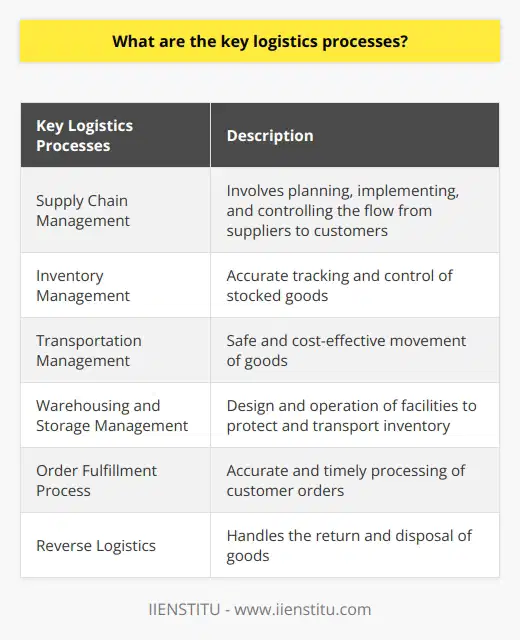
What is the importance of logistics management?
Significance of Logistics Management
Effective Coordination
Logistics management is crucial as it ensures efficient coordination of resources for transporting goods from one location to another. This process includes important aspects like warehouse management, transportation management, and inventory management, which streamline the entire supply chain process, ensuring timely delivery of goods to customers.
Cost Reduction
Logistics management contributes to cost reduction by identifying and eliminating inefficiencies in the supply chain. Effective logistics management leads to reduced warehousing costs, lower transportation expenses, and optimal inventory levels that result in significant cost savings for businesses. It also helps avoid delays and other costly issues that may affect the organization's operations.
Quality Control and Customer Satisfaction
Logistics management plays a vital role in improving the quality control of goods and maintaining customer satisfaction. By monitoring the movement of goods and resources, logistics management ensures that products are delivered in good quality and in a timely manner. As a result, customers receive their orders as expected, leading to a positive experience and increased customer satisfaction.
Competitive Advantage
Organizations that excel in logistics management gain a significant advantage over their competitors. This is because they are able to provide better customer service and reduce delivery times while minimizing costs. Efficient logistics management leads to improved supply chain performance, allowing companies to operate more effectively and stay ahead in the competitive market.
Global Expansion
In today's globalized world, logistics management is the backbone that enables companies to expand their operations and reach customers across different regions. Efficient logistics management reduces the complexities involved in navigating international trade and transport regulations. It also allows businesses to have a better understanding of cultural, legal, and language-related factors that may affect global operations.
In conclusion, logistics management is of paramount importance in the modern business world. It ensures effective coordination of resources, contributes to cost reduction, and improves quality control, which results in enhanced customer satisfaction. Moreover, efficient logistics management enables businesses to achieve a competitive advantage and facilitates their expansion in the global market.
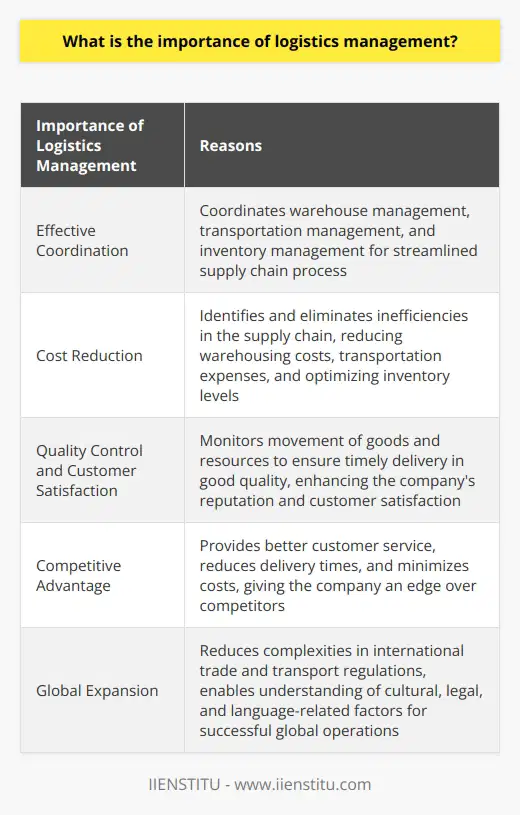
What is the importance of logistics and transportation?
Significance of Logistics and Transportation
Efficient Management of Resources
The paramount importance of logistics and transportation in today's globalized world cannot be overemphasized. These key functions enable the efficient management of resources, as they play a critical role in the procurement, storage, production, and delivery of goods and services.
Enhancing Competitive Advantage
Organizations that invest in logistics and transportation can gain a competitive advantage over their peers. They can achieve this through faster delivery times, reduced costs, and improved customer satisfaction. Moreover, reliable transportation services ensure the timely arrival of essential resources, maintaining the smooth functioning of the supply chain.
Promoting Economic Growth
Logistics and transportation serve as the backbone of an economy, contributing significantly to its growth and development. The efficient movement of goods and services stimulates commerce, creates jobs, and spurs innovation. Improvement in transportation infrastructure attracts foreign investment and can drive overall economic prosperity.
Mitigating Environmental Impact
The adoption of sustainable logistics and transportation practices is imperative for reducing the environmental impact of these operations. Incorporating energy-efficient technologies, streamlining processes, and fostering environmentally conscious modes of transportation contribute to the minimization of greenhouse gas emissions, resource depletion, and pollution.
Facilitating Global Trade
Global trade depends on the effective coordination and execution of logistics and transportation. These processes facilitate the exchange of goods and services between countries and contribute to the interconnectedness of the global economy. Furthermore, efficient logistics and transportation networks facilitate the movement of people and ideas, fostering cross-cultural understanding and cooperation.
In conclusion, the importance of logistics and transportation lies in their ability to ensure the smooth and efficient functioning of supply chains, contribute to economic growth, and promote environmental sustainability. Organizations and governments alike should recognize the significance of these processes and invest appropriately in infrastructure and technology to reap the extensive benefits they offer.
